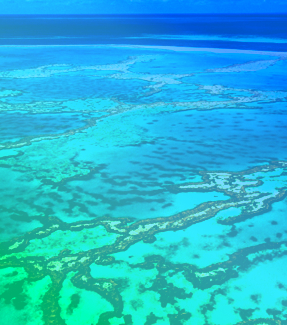Reef retains UNESCO status
 The status of the Great Barrier Reef has not been downgraded by UNESCO, but it remains on probation.
The status of the Great Barrier Reef has not been downgraded by UNESCO, but it remains on probation.
The United Nations Educational, Scientific and Cultural Organisation (UNESCO) has granted Australia a reprieve on its threat to downgrade the World Heritage status of the Great Barrier Reef, following the Albanese government's upgraded climate targets.
UNESCO’s latest report is available in PDF form, here.
The move has been met with both relief and caution as the world's largest coral ecosystem faces escalating damage from global warming.
The recent upgrade of Australia's climate target, a commitment to cut emissions by 43 per cent by 2030 and achieve net-zero by 2050, played a vital role in swaying the governing body's decision.
Additionally, substantial funding and efforts to mitigate pollution and harmful fishing practices have been acknowledged.
However, the verdict comes with a stern warning.
UNESCO emphasised that Australia must demonstrate tangible progress in safeguarding the Reef by next year.
“UNESCO's draft decision acknowledges that, under Labor, Australia is once again serious about protecting the Reef and acting on climate change,” said Federal Environment Minister Tanya Plibersek.
Despite this positive outcome, environmentalists stress that more needs to be done to secure the Great Barrier Reef's long-term survival.
WWF Australia's head of oceans, Richard Leck, says aggressive emissions reduction measures are needed to align with the Paris Agreement's goal of limiting global warming to 1.5 degrees Celsius.
Similarly, the Australian Marine Conservation Society's reef campaign manager, Lissa Schindler, has urged the government to impose stricter controls on tree clearing in Queensland to reduce sediment runoff that threatens marine life.
The Great Barrier Reef's future remains uncertain, given the increasing frequency of coral bleaching events and the 1.47-degree Celsius warming already experienced in Australia due to global warming.
A report by the Australian Academy of Science warns that if the world warms by 2 degrees Celsius, only 1 per cent of corals will survive.
UNESCO's decision in 2021 to recommend the reef's status be rated as “in danger” was driven, in part, by the Morrison government's climate policy, which fell short of the global action needed to limit warming to under 2 degrees Celsius, as outlined in the Paris Agreement.








 Print
Print